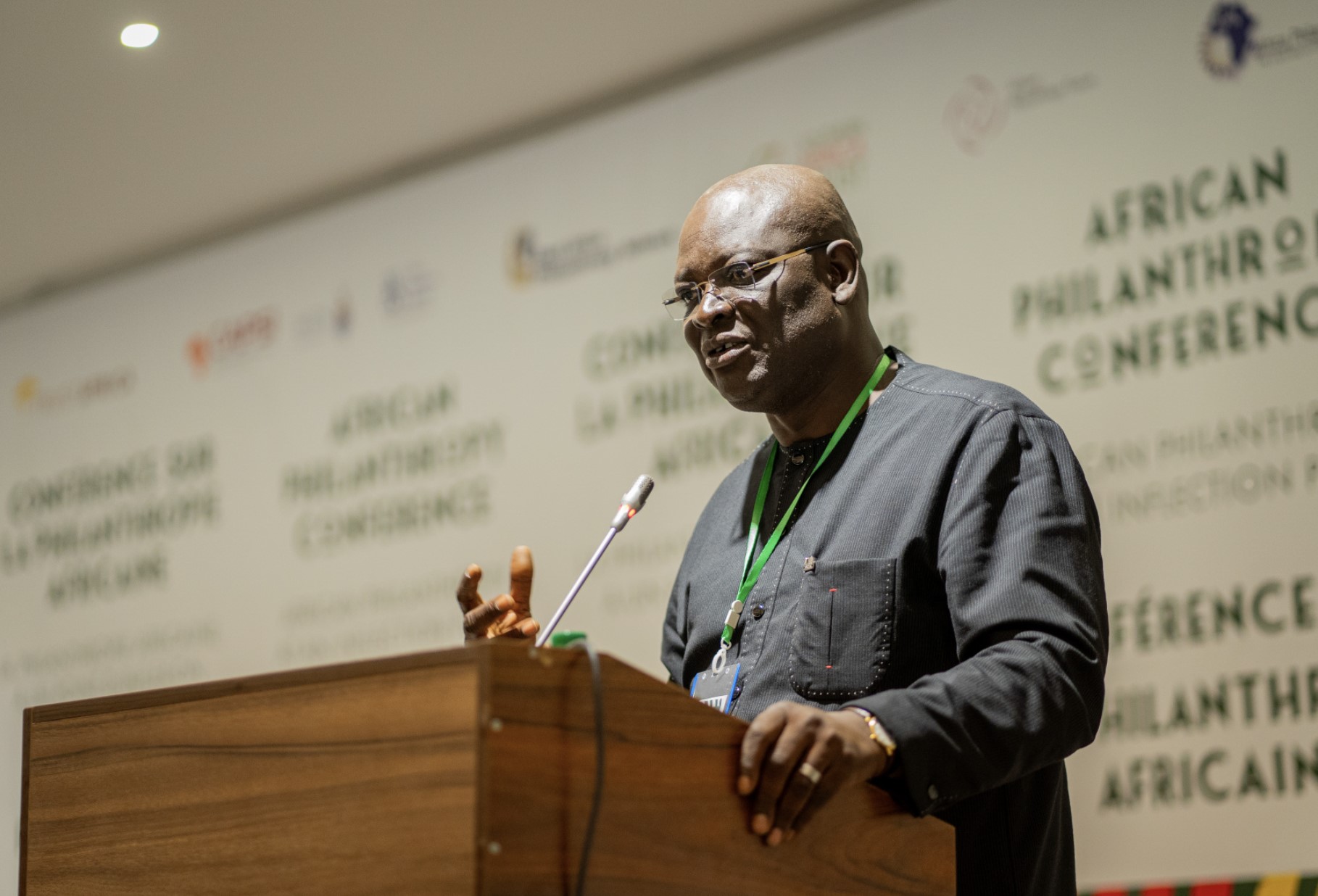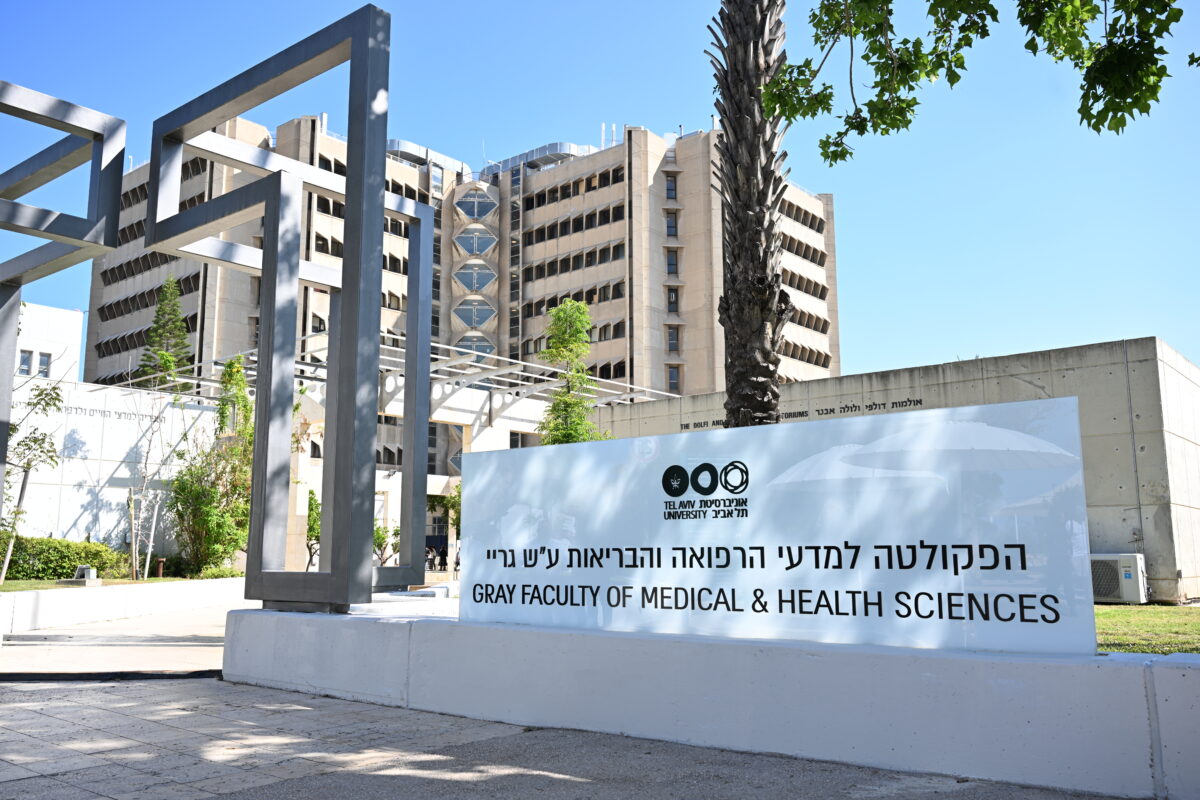I met Mamadou in July 2022 in Italy at the first convening of the Global South Impact Community (GSIC). The community is comprised of senior leaders from public, private, and philanthropic institutions across the Global South, of which the Global Fund for Community Foundations and the African Capacity Building Foundation (ACBF) are members. At the time, Mamadou was taking on the reins of the African Capacity Building Foundation, so at the side-lines of this year’s 4th Annual African Philanthropy Conference in Saly, Senegal, and after hearing him give his keynote speech, I took the opportunity to reconnect and catch up with him.
Mamadou Biteye
*Mamadou Biteye’s keynote speech was delivered under the ‘Practices’ subtheme of the African Philanthropy Conference that explored the narratives currently defining African philanthropies. An inflection point in this dimension is the shift in strategies, methods, and tools used by philanthropic organisations, moving towards more participatory and collaborative forms of philanthropy. You can listen to his full keynote speech here.
Ese Emerhi: I really enjoyed your keynote speech, and there were some specific things I wanted to follow-up on. First, the need for African development and philanthropic practitioners to change our mindsets about how we do the work; second, how we scale up our work to show impact; and third, in the process of reimagining the aid system to centre justice, fairness and dignity, how can African philanthropy, in your opinion, position itself to be a true force to be reckoned with 10, 20 years from now?
But before we get into all that, can you talk a little bit about the African Capacity Building Foundation?
Mamadou Biteye: The African Capacity Building Foundation (ACBF) was founded 32 years ago by 12 African States, with the support of the World Bank, the African Development Bank, and UNDP. The purpose of ACBF was to build the human capital and organisational capacity of the institutions mandated to shepherd African economic inclusive development. Back then ACBF trained macro-economists, supported institutions (think-tanks, civil society etc.), and provided evidence and data analysis to support policymakers develop programs and devise policies.
Now, the ACBF has grown its membership from 12 African states to 40, and in 2017 ACBF was granted specialized agency status by the African Union for capacity development, in recognition of its contribution to the continent. This new status gives ACBF legitimacy to speak on behalf of the African Union and Africa on issues related to capacity building. The new status also expanded the ACBF mandate to premier partners for capacity building on the continent.
‘Philanthropy is the grease that oils the wheels of progress in society, so it’s important that we don’t shy away from looking at all the factors around the inflection points for African philanthropy.’
Today, we continue to focus on human capital and institution building, but with special focus on pressing issues faced by the African continent – climate adaptation, agri-business and food sovereignty, trade as an engine for economic development, economic and social governance (mainly around issues on domestic resource mobilization), and sound and inclusive financial management. ACBF is a service-oriented institution to all sectors – public sector, civil society, academia, and the private sector.
EE: What has it been like since you took over last May?
MB: It’s been both intriguing and enlightening to learn about the capacity development landscape on the continent. I was aware of the situation I walked into. For the first 25 years of ACBF, it functioned as a donor-coordinated mechanism for capacity building. The World Bank and many bilateral partners such as France, UK, and the likes channelled resources for capacity building through ACBF. We had a huge grant-making role, redistributing resources to our partners in the form of institution-building initiatives through training, coaching and systems reforms, creation of institutions and platforms for knowledge sharing.
And then things changed in 2017 when we concluded the implementation of the World bank supported ‘ACBF Regional Capacity Building Project’, which constituted the greater part of our Programs Portfolio, and this signalled the end of unrestricted funding coming to ACBF. It was the opinion, rightly so, of the World Bank that after 20 years of supporting ACBF, we should be mature enough now to work on our own. Unfortunately, though for ACBF, the grant-making component of our work had taken prominence over other functions, and so when funding from bilateral partners and the World Bank stopped, it was difficult for us to reinvent ourselves.
EE: I want to switch gears now and talk about some of the things I mentioned in the beginning and where and how, as ACBF expands its services and reinvents itself, does philanthropy fit into your strategy?
MB: There are philanthropic institutions that provide resources to us to support their African partners. The Bill & Melinda Gates Foundation, for instance, supports us with several projects. One is around climate change adaptation, and the other is in advancing medical biotechnology on the continent. Essentially, they are buying our services on behalf of their partners. So, any philanthropic organisation that wants to support capacity building of organisations in Africa, or build skills of people and specific issues, can fund us to provide that.
EE: Do African philanthropic institutions come directly to ACBF for services?
Mamadou Biteye: Yes, they do, the philanthropic institutions are realising that ACBF is the premier partner for capacity building on the continent and we take them on a fee-for-service basis. In most cases they are seeking ACBF support in strengthening the capacities of their beneficiaries to guarantee value for the investments they are making in Africa. However, we also observe that for some, they do not have the capacity to pay directly for our services, and in such instances, we help them identify partners that are willing to finance their capacity-building needs. In fact, most of the organizations at this conference have benefited in one way or the other from ACBF.
EE: What is the role of African philanthropy?
Mamadou Biteye: Philanthropy is the grease that oils the wheels of progress in society, so it’s important that we don’t shy away from looking at all the factors around the inflection points for African philanthropy. Philanthropy stands in the gap between the limitations of resource scarcity faced by the public sector (governments) and the pursuit of profits by the private sector, that limit optimal investments in research and development, for example, in support of innovation and technological advancement, for socio-economic transformation.
‘African philanthropy, the small thousands of ways we give every day, has not been transformative in the way we want it to be, because we don’t give from excess, we give from the little we have. For it to be transformative, it needs to be giving from excess.’
I see this as one of the most critical roles that philanthropy should be playing. However, because of coordination limitations, I also see a lot of fragmentation among African philanthropists, with individualistic insistence on completely different choices on how their resources are to be utilized. I therefore really hope that these high-net-worth individuals and foundations can come together at some point and be more coordinated in their interventions as they contribute to the transformation of the African continent, which I believe is a common goal amongst them. The true force of African philanthropy is its ability and its acceptance to combine resources, so we have a bigger impact.
EE: Part of having these difficult conversations is also admitting some of our failures as well. Do you think we talk about our failures enough?
MB: We do not talk about our failures. It takes courage to do this and that’s a culture that needs to be built. It’s about learning. Obviously, nobody likes failures, but the best successes are preceded by a series of failures where you learn from each one. So, sharing these lessons and mistakes will prevent others from repeating them. All this, however, will take brave leadership.
EE: Are you hopeful about African philanthropy?
MB: It will take time. Let me say this: when I joined the Rockefeller Foundation in 2013, it was also the year of the Centennial of the Rockefeller Foundation. It is one of the oldest private foundations in America, and it grew in influence and wealth with the overall growth of prosperity in America. In that same vein, the growth of African philanthropy is going to be associated with some form of economic prosperity and growth on the continent; the two must go together.
African philanthropy, the small thousands of ways we give every day, has not been transformative in the way we want it to be, because we don’t give from excess, we give from the little we have. For it to be transformative, it needs to be giving from excess. This is the example globally when you look at how philanthropy has really led to transformative change. It cannot be the exception for Africa.
EE: Is that a good thing?
MB: Absolutely, absolutely. I think that as the continent prospers, philanthropy will grow and probably have more resources to invest, to innovate, to build capacity, to attract qualified talent, to compete with the best, etc. But we must understand that these things take time.
Credit:Source link



